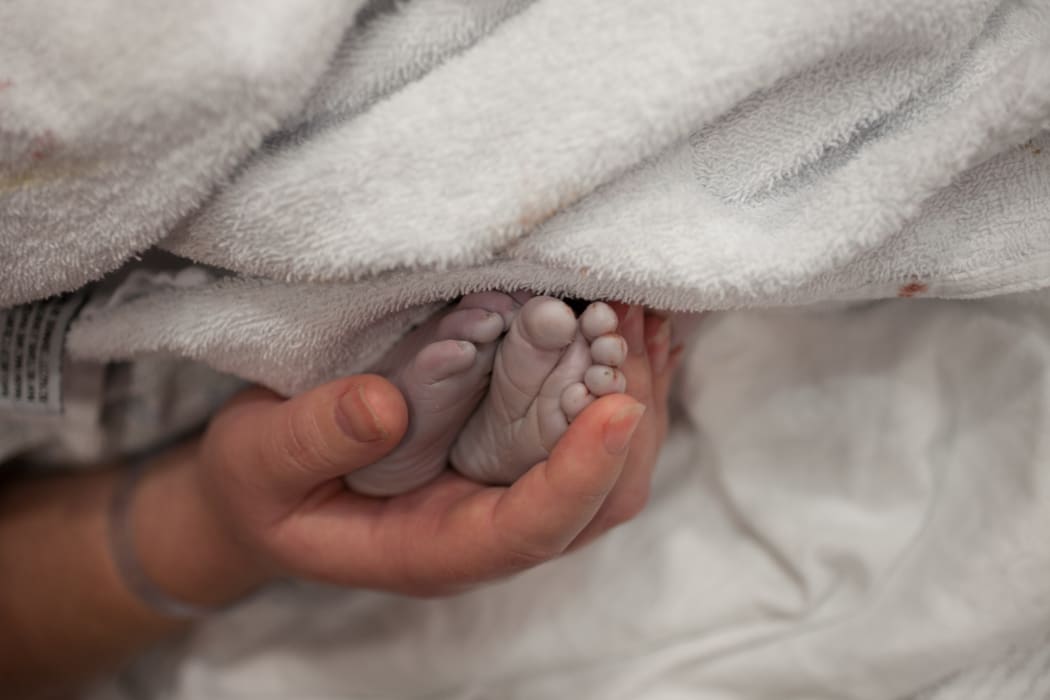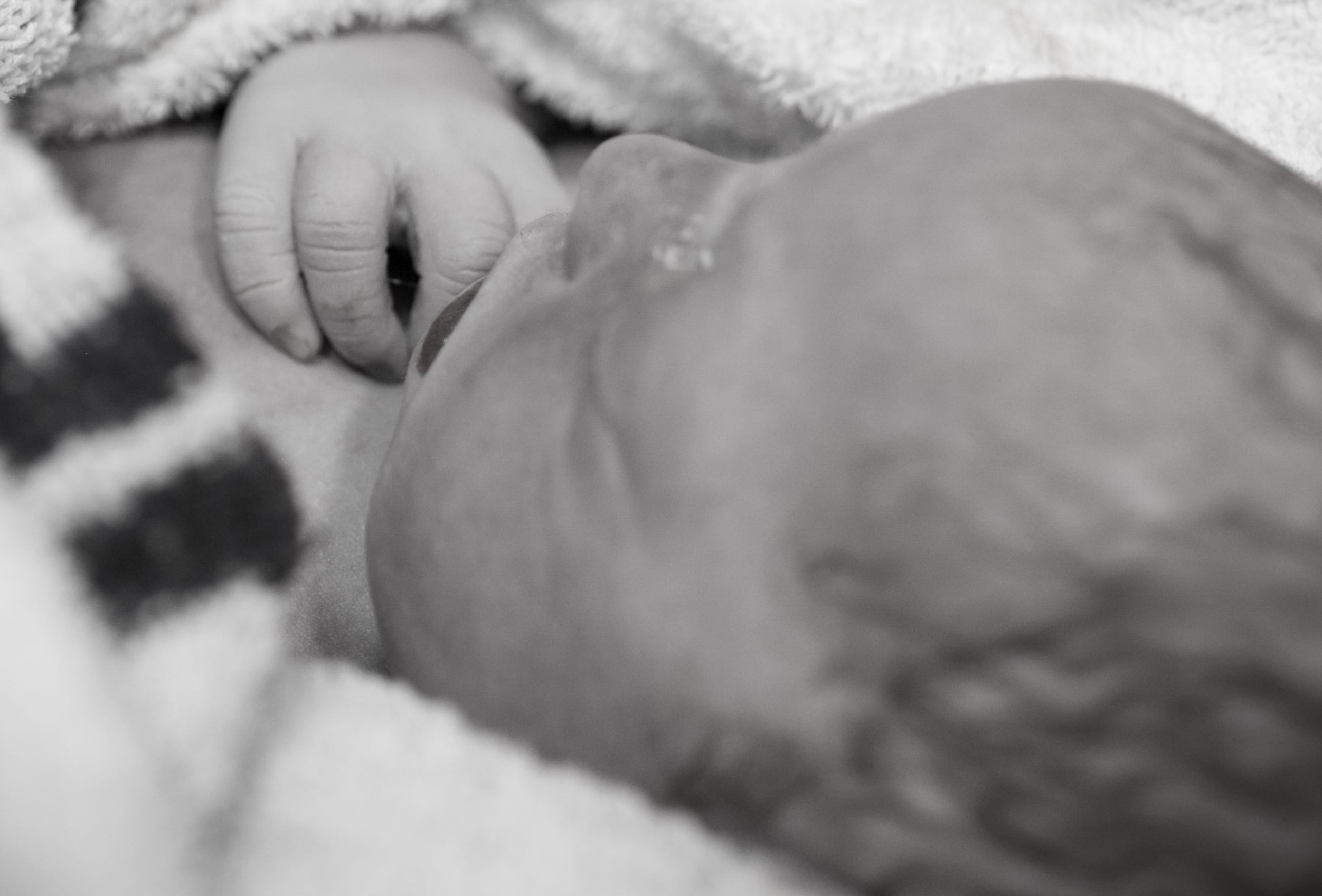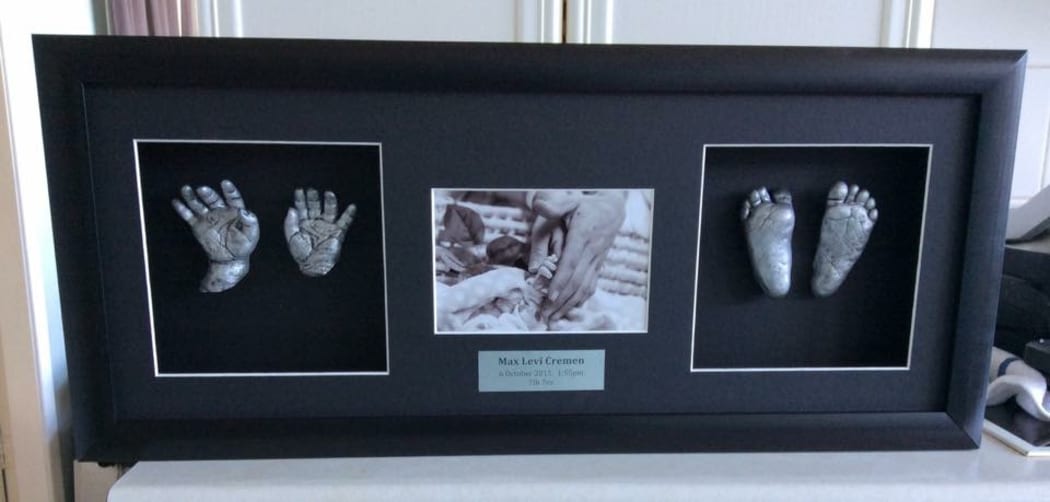The grief when someone passes away is raw and angry - in that moment the world has swallowed you whole. When it’s triggered again you’re taken back to the memories and time shared with a person who is no longer here. But what about when it’s a child whose life was cut short before they took their first breath? Sonia Sly spoke to four parents coping with the loss of a baby.

Photography is key to creating memories Photo: Images courtesy of Nicola Devine
Hamilton-based Nathan Thompson was an excited father to be. His wife Andrea was expecting her first baby Amber.
But things changed when they discovered their daughter had Turner’s syndrome - a chromosomal condition that affects females and impacts their mental and physical development.
Despite the news, they decided to forego termination with the hopes of making it to full term.
“It was at 19 weeks so devastating to find out that news. Everyone deals with it a bit differently. We just took time away from people, talked to each other. It was hard to talk about but it was easier once it was off our chest.”
Nathan says they were happy to discuss it but found it was awkward for other people who didn’t know how to deal with it or tried not to say anything upsetting.
“Some people will be happy to talk about it and other people will listen, try to help, but also change [the] subject to try make us think of something happy or different.”
For Andrea it left a void. She needed something tangible, something to hold on to in order to deal with her loss.
“The first thing she got made was a little doll. Something she could have on her desk.
Amber was 10 centimeters and weighed 100 grams when born so the doll was made to match.
“Andrea carried it around so she felt like she still had Amber with her,” Nathan says. “That helped a bit with her grief.”
Nathan’s grieving came later.
“I was standing up taking over, doing all the organising to help Andrea. Once she was ok then it hit me. Men’s grief tends to hit a lot later. It’s easier to let a bit out at a time than let it all ball up and blow. Usually it’s when you’re alone, it’ll get you more.”
As a subject matter, losing an infant is very rarely talked about but for many parents the area needs greater understanding.
Talking about the experience and keeping the memory of their baby alive is what matters most, and many parents keep mementos, special jewellery, or other keepsakes to remind them of the baby that is no longer here.
There are also volunteer organisations and individuals across the country who gift their time to families in the immediacy of tragic loss.
Nicola Devine runs a website based around remembrance photography, a site that includes tips and advice for parents who have lost a baby.

The images can be confronting but Nicola Devine's own research shows photography can help the grieving process. Photo: Remembrance Photography/Nicola Devine
The website is intimate and the images are confronting, but the purpose behind it was founded on research that Devine conducted into the grieving process and the benefit of maintaining and creating memories through photography.
Her advice is, “take as many photos as you can,” and she says that there are plenty of ideas including photos of their head, hair, feet and making sure there are photos with the mother and father and parents together.
“You don’t need a professional photographer, and sometimes the charity photographers aren’t available but they can help you with photo-shopping after you’ve taken your own photos.”
Devine started the website after the loss of her two babies who had both reached full-term.
"Tanner would have just turned two, and Gabriel would have been five. With Gabriel, when I had a scan to check the size of his head that was when they discovered that something was very seriously wrong. They did an MRI the next day and were able to come back with a prognosis that we had both contracted toxoplasmosis, which is a bacteria that eats babies brains."
The news was heart-breaking she says. Gabriel was blind, deaf and his brain had liquefied and bacteria was attacking all of his internal organs.
“It was two months later that we discovered it, and he was very sick. These experiences have changed my life and I’ve lost a lot of friends. I think it takes about two years to heal after losing a baby, and I’m going through that for the second time. The other loss is that we’re not able to have more children, so again, that’s almost like another death.”
Vicki Soal of Timesnap Angel Casts is a Wellington-based mother of two who volunteers her time at Wellington Hospital to cast the hands and feet of stillborn babies and those who have been delivered at full-term, but have encountered complications after birth.

Hand and feet casts of baby Max by Vicki Soal Photo: Courtesy of Timesnap Angel Casts
She says people think a baby’s feet or hands are immersed in plaster but the process is more gentle and uses the same material dentists used to mould teeth.
“The beauty of this process is that it captures all of the tiny details like the wrinkles or even a plaster on a baby’s foot. These babies look like perfectly tiny, gorgeous human beings, no matter how old they are.”
It takes compassion, a lot of heart, and in part a willingness to share in a family’s overwhelming grief to do the work that Vicki does. She donates her time outside of a full-time job and pours her own funds into making, framing and delivering the homemade casts to families.
“It’s something I feel like I need to do. I’m lucky, I’ve got two kids. My son’s not well. He’s got neurofibromatosis type two meaning his body doesn’t know not to grow tumours.”
At age 26, Vicki’s son has nine tumours including throughout his spinal cord and head.
“I’ve been able to see him grow up and I love his big bear hugs and he always knows when I need one and that’s why I do it,” she says.
“I’m lucky I’ve had that opportunity but these parents haven’t so if I can give them something to hold, there’s no option then, it’s just something I need to do.”
Related:
- Katy Gosset talks to South Island parents about how they coped with this most difficult of grief.
- Hear Sonia Sly talk to volunteers who donate clothing and teddy bears for stillborn babies.

